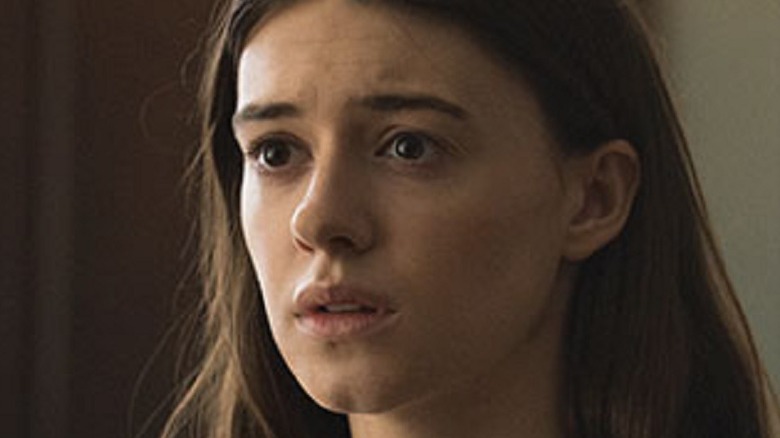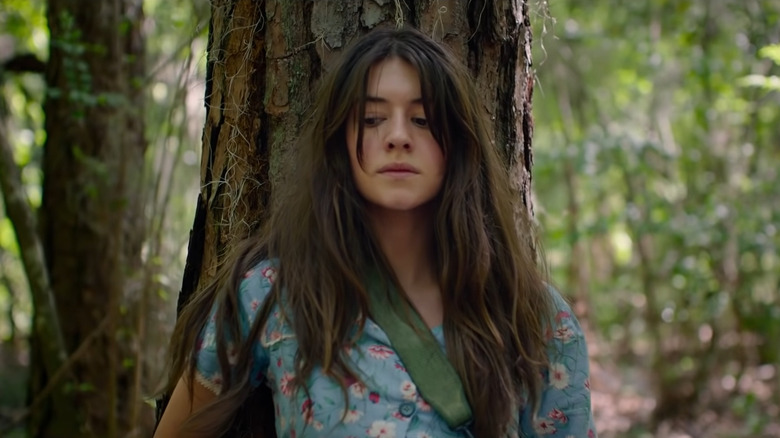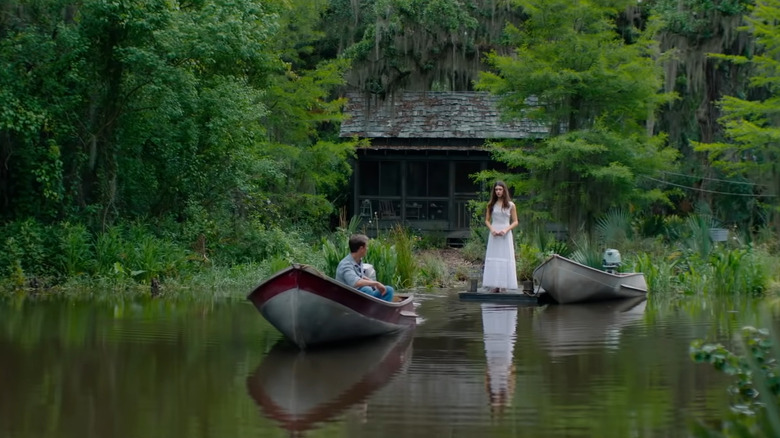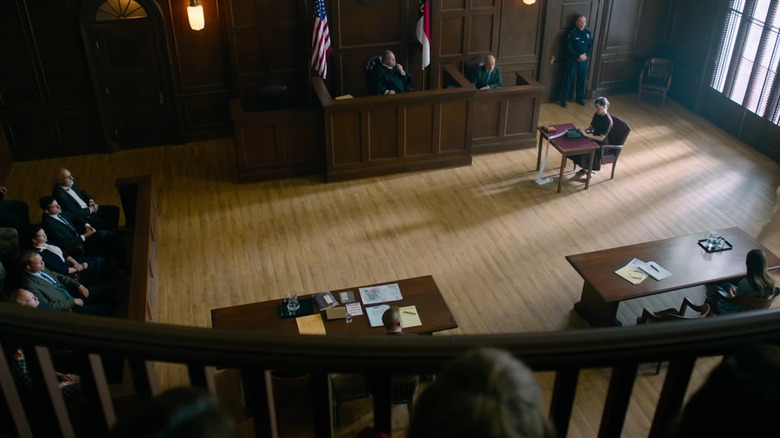Where The Crawdads Sing Review: A Mixed Bag Of Charm And Tedium
- Daisy Edgar-Jones's powerful performance as Kya
- Gorgeous, atmospheric cinematography of the marshes
- Murder trial that continually brings the plot to a screeching halt
- Frustratingly generic abusive golden boy in Chase Andrews
Kya (Daisy Edgar-Jones) has spent her entire life being left behind. "Where the Crawdads Sing," based on the best-selling novel by Delia Owens, is a treatise on the lonely life of the outsider, depicted in vivid detail by the breathtaking landscapes of Kya's home in the marshes of North Carolina. It's essentially a stool built on three legs: The first is the compelling, wounded performance of Edgar-Jones as Kya, the second is the stunning cinematography that casts a spell over the entire production, and the third is the murder trial in which Kya finds herself embroiled. If the last is by far the most wobbly, the other two are strong enough to support the film, making "Where the Crawdads Sing" an imperfect but captivating drama.
Within the small 1950s town of Barkley Cove, North Carolina, there is a tight-knit community that doesn't take kindly to outsiders. This puts Kya and her family at a distinct disadvantage, living an isolated existence in the marshes on the outskirts of town, with their lack of social opportunities giving them no reprieve from the oppressive harshness of their patriarch (Garrett Dillahunt). After a severe beating, their mother leaves, followed by the older children who sneak away, one by one, until Kya is left alone with her father. He is the last to abandon the marsh, leaving a little girl entirely on her own in the world.
Kya's survival instincts
Kya, however, is a fighter. She finds ways to earn money, harvesting oysters in the marsh. The residents of Barkley Cove are unwilling to extend her any kindness, mocking her dirty clothes and referring to her exclusively as the Marsh Girl. So she grows up alone, relying on just her own wits to protect herself. But when one of the town's favorite sons, former high school quarterback Chase Andrews (Harris Dickinson), is found dead, suspicious eyes are immediately turned her way. On trial for his murder, she learns that being an outsider is an especially dangerous position to be in.
"Where the Crawdads Sing" relies entirely on the talents of Daisy Edgar-Jones for its success, and director Olivia Newman could not have found a better actress for the role. She brings a slightly off-kilter intelligence to Kya, a longing for companionship mingled with stubborn self-sufficiency and a desire to live on her own terms. Her efforts to learn about the world beyond the marshes and her first tentative steps into a romance with childhood friend Tate Walker (Taylor John Smith) are endlessly endearing to watch. There's a charm and innocence to their relationship, even if it does occasionally run the risk of romanticizing abject poverty.
A charming romance
If only the film maintained a single-minded focus on this relationship, creating a well-intentioned, folksy, Nicholas Sparks-esque romantic period drama. That's where the heart of "Where the Crawdads Sing" is, and it only suffers when it tries to muddy the waters, first with an ill-conceived relationship between Kya and Chase, a pairing that has comically bad vibes from the very beginning, then with an exasperatingly overstuffed murder trial. It could have been just a charming, atmospheric depiction of a relationship between two people from very different worlds with different types of intelligence learning from one another and appreciating each other's unique qualities.
But inevitably, it has to take a turn. It has to become a supremely unsubtle treatise on prejudice and suspicion of outsiders (only beautiful, white outsiders though — the two Black characters in the film may as well be two cardboard cutouts whose only purpose is to make the life of the protagonist easier, and the mistreatment they meet at the hands of their neighbors goes unexplored).
Not quite the murder trial of the century
This leads us to the most frustrating element of "Where the Crawdads Sing": the court case that sees Kya on trial for the murder of Chase Andrews. There's no effort at all to build this into an even slightly compelling case — it hinges so completely on the fundamental mistrust of the citizens of this seemingly idyllic Southern town towards the so-called "Marsh Girl" that there's next to no narrative tension. We don't feel the subtle shifts as one side makes their argument against the other, the jury swaying with the wind upon the release of each new piece of evidence. It's so dry and unimaginative that if it weren't for David Strathairn as Kya's idealistic lawyer doing his level best to sanctimoniously shame the town for their cruelty, you could probably skip over all of these scenes and not miss anything. The film's perplexing focus on the crime aspect of the story seems to fundamentally misunderstand what actually makes it compelling in the first place.
But let's give "Where the Crawdads Sing" a little bit of credit. Daisy Edgar-Jones is luminous, and she proves with her performance in this film that if there's any justice, we should be seeing a lot more of her. The segments of the story that focus on her relationship with Tate capture the magic of young love, as Kya finds her world slowly expanding beyond the reaches of the marsh. The cinematography of this vivid landscape is breathtaking, making it clear to see why Kya would be so reluctant to leave it behind. Is this enough to help "Where the Crawdads Sing" rise above the tedium of its second half, embroiled as it is in a boilerplate abusive relationship and an overwrought murder trial? Well, at the very least, it makes the latter sins a little bit easier to forgive.



